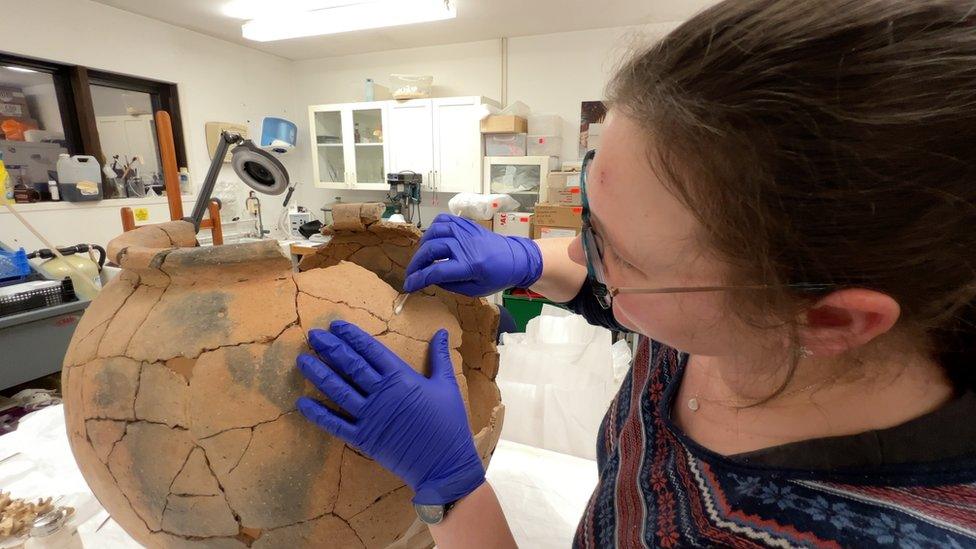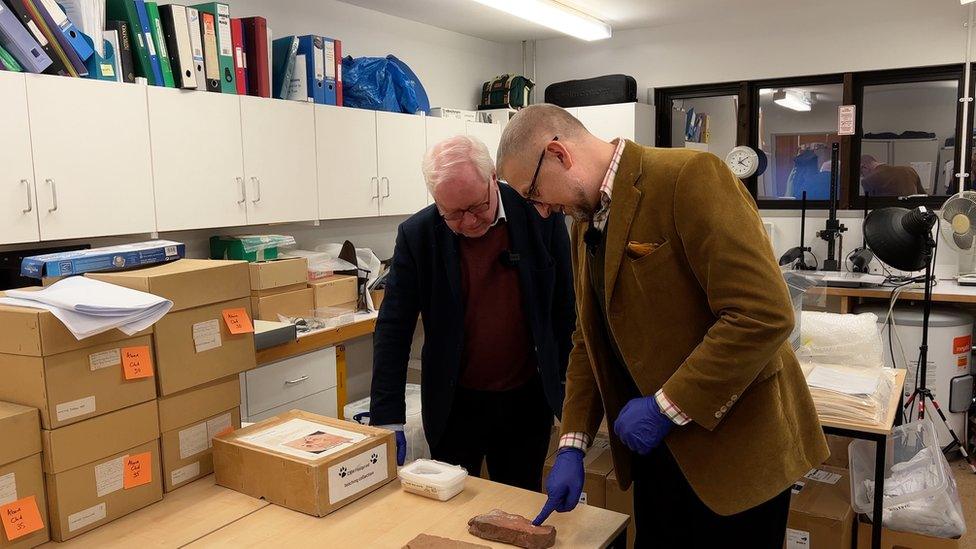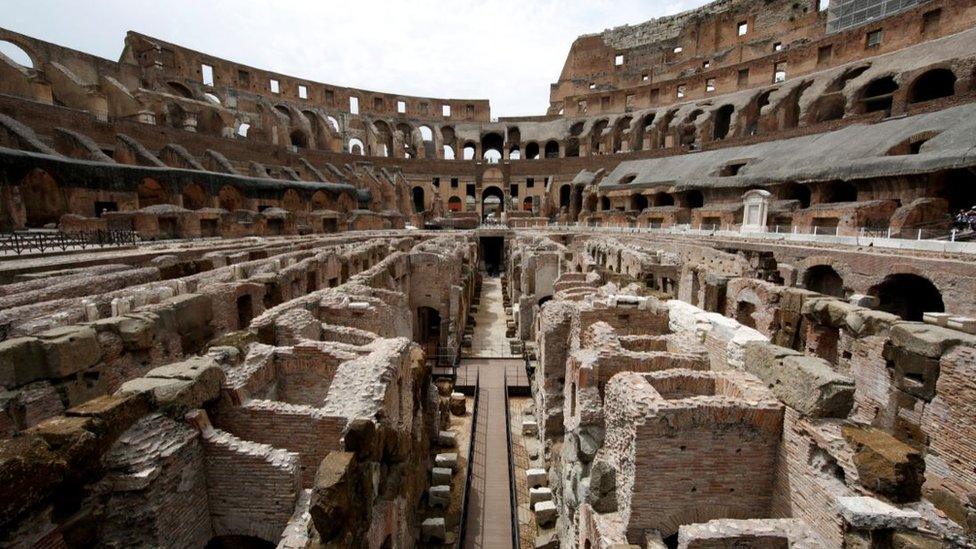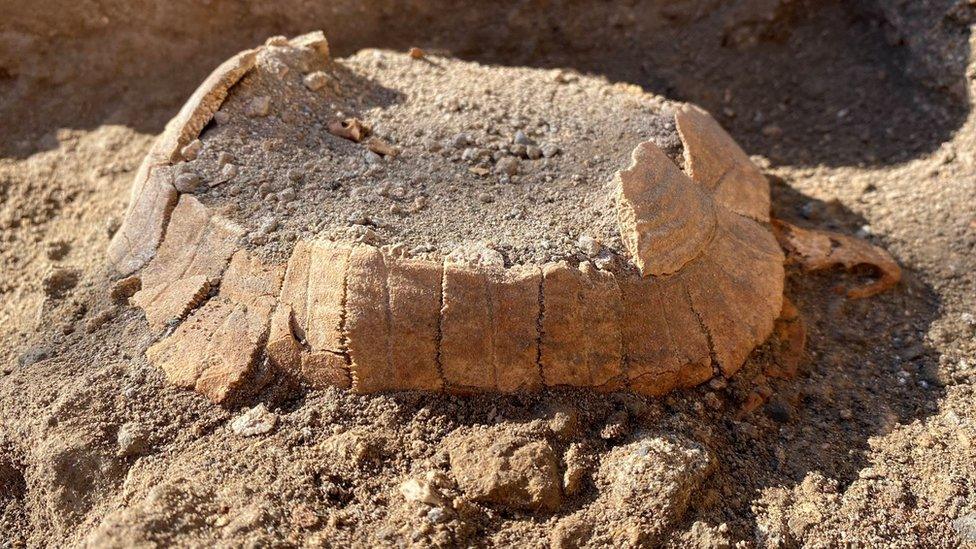Hampshire Iron Age and Roman discoveries by Reading team on show
- Published

Among the 150 objects on display will be a huge Roman grain storage jar and a Roman roof tile with a Nero stamp on it
Iron Age and Roman discoveries will go on display after five decades of archaeological digging.
A new exhibition will show the life of settlers in Hampshire 2,000 years ago, and how things changed for them under Roman rule.
Becoming Roman - Silchester, a Town of Change is the result of excavations led by the University of Reading.
It will be shown at the Willis Museum and Sainsbury Gallery in Basingstoke from 10 February until 28 April.
Professor Michael Fulford, from the University of Reading, is the director of the Silchester Town Life Project.
He said: "I am extremely grateful for the huge contribution that generations of our students and local volunteers have made to the success of the excavations over the past 50 years."
Among the 150 objects on display will be a huge Roman grain storage jar and a Roman roof tile with a Nero stamp on it.
A French tribe established a settlement at Silchester, which went on to become a wealthy capital with its own Iron Age mint.
Evidence shows that it traded across the world, and visitors to the exhibition will see the skeleton of what is thought to be the first lap dog in Britain, imported from across the Channel.

Becoming Roman - Silchester, a Town of Change is the result of excavations led by the University of Reading
Nick Suffolk, head of heritage experience at Hampshire Cultural Trust, said the Roman age discoveries "give us a frozen moment in time"
"From a footprint on a drying floor tile to hairpins lost in the Roman baths and coins dropped in the forum," he said.
"These little, everyday occurrences and misfortunes allow us to connect emotionally with the daily life of someone living thousands of years ago."

Follow BBC South on Facebook, external, X, external, or Instagram, external. Send your story ideas to south.newsonline@bbc.co.uk, external.
Related topics
- Published24 November 2022

- Published24 June 2022
